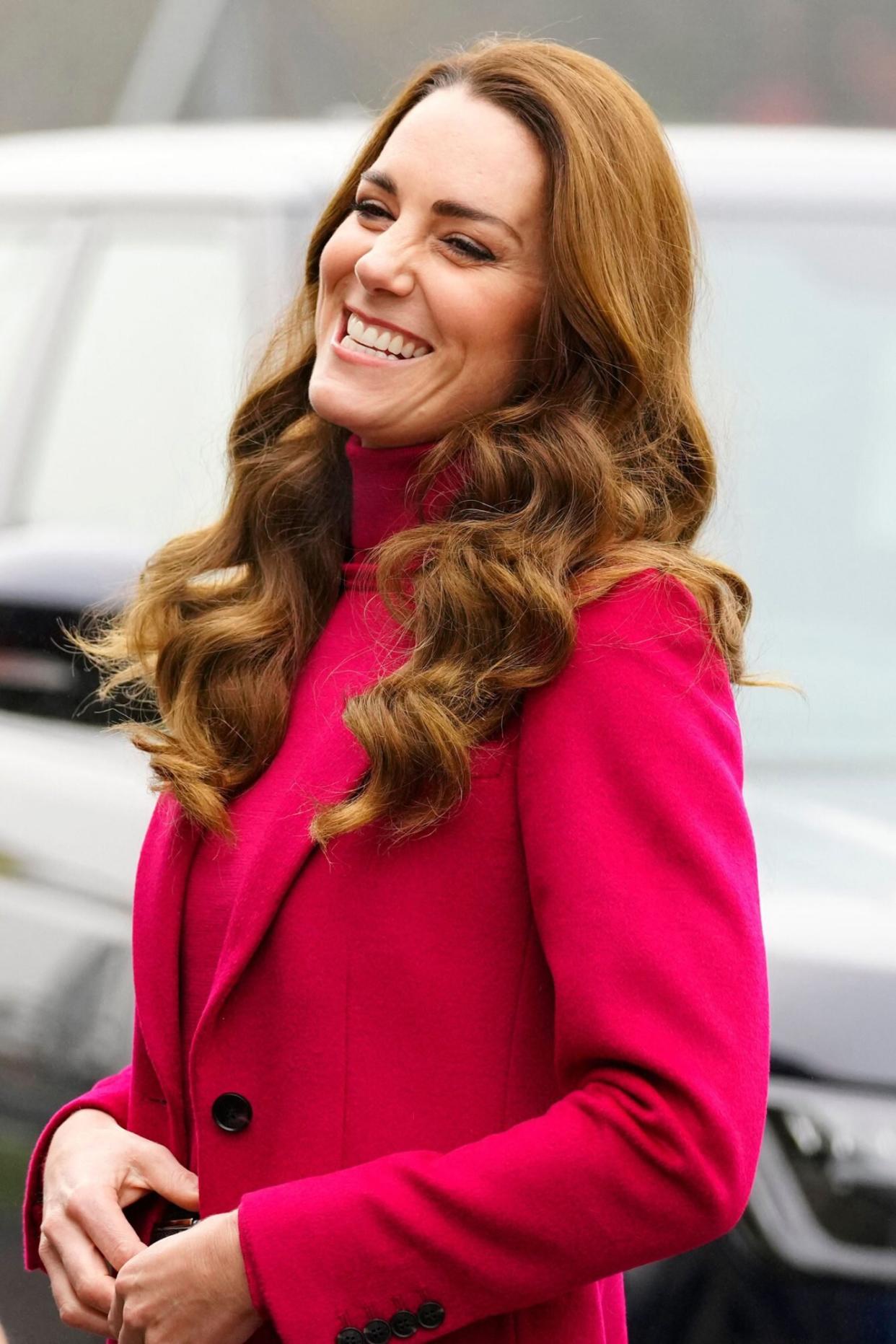Kate Middleton 'Excited' Young People Are Learning About Brain's Building Blocks to Understand Mental Health

KIRSTY WIGGLESWORTH/POOL/AFP via Getty Images Kate Middleton
Kate Middleton showed her deep enthusiasm for the science backing up how a child's early development can influence a person's potential and mental wellbeing.
Joining a class and teachers at a school piloting new learning materials on Wednesday, the royal mom of three saw how kids are being helped with new tools to understand the brain in some of its earliest stages.
Kate, 39, has made the early years a key part of her public work and recently set up a department of the Royal Foundation dedicated to it. As she digs deeper into the subject, she is immersing herself in the science about how the building blocks of the brain are vitally important to determine someone's mental health.
On Wednesday, she saw a new project in action at a school in northwest London. Drawn up by the Secondary Education around Early Neurodevelopment project at Oxford University, it has been taken by around 3,700 pupils in the U.K. so far.
"She completely understood how we need to give more gravitas to this and that everyone needs to understand and make that connection between your brain development and your future long-term health. She repeated that a few times back to me," Dr. Elizabeth Rapa, Senior Post Doctoral Researcher at the SEEN Project, tells PEOPLE.

Kirsty Wigglesworth/AP/Shutterstock Kate Middleton
Kate went around the classroom's tables one-by-one, seeing projects the 12- and 13-year-old students were undertaking including a look at slides showing neural connections at different ages of a baby's brain. One pupil said that they were "building a brain" when they spoke with their younger sibling or baby.
"She was really impressed about that," Dr. Rapa adds. "That's the connection she wants everyone to make. This is not just scientists talking about brains — it's that actual real life change of practice and behavior that's important."
Adds Rapa's colleague Dr. Louise Dalton, Consultant Clinical Psychologist: "She was genuinely excited to see how much the students had learned and understood about the science."
The Duchess of Cambridge was keen to see the classroom in action because it closely aligns with the work on early childhood and its influence on future outcomes for a person's health or mental wellbeing or their potential. In a roundtable chat at the Nower Hill School, Kate "was saying we need to change the conversation about how we think about adults in respect to what happens to everyone during the early years," Rapa adds.
"It's not what's wrong with you but what's happened to you — that's quite a common phrase but it was one of the first things she said to me," she says.

KIRSTY WIGGLESWORTH/POOL/AFP via Getty Images Kate Middleton
Can't get enough of PEOPLE's Royals coverage? Sign up for our free Royals newsletter to get the latest updates on Kate Middleton, Meghan Markle and more!
Kate begin to think about mental health challenges following her work with charity Action on Addiction. Since then, she has dug further talking with neuroscientists and mental health professionals about how best to counter the challenges many people end up facing.
"She clearly gets it. It's clear to see how enthusiastic she is about it and how we all need to have this level of understanding — from the police to solicitors to teachers to people who work with children," Rapa tells PEOPLE. "It's obviously her absolute passion to get that out. This has really hit a chord with her."


